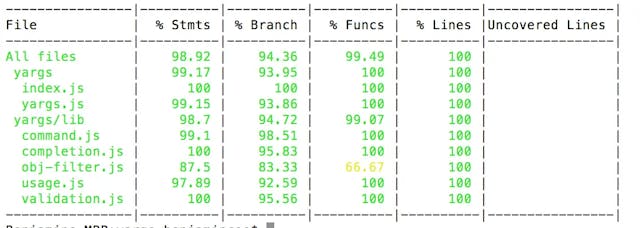
Saturday 14 January 2023, 19:30PM
What I'm hoping for in the next big language
We haven't had a big new mainstream language in a while. Here's what I'm hoping for.
What's wrong with the current ones?
Short answer: nothing. End of article!
Long answer: they're fine, they do the job well, their ecosystems and communities are well established and could pretty much build anything and everything we'd want for a really long time. But they are also generally pretty old, and even if they've evolved relatively well over the years, there's always going to be a good number of design decisions and implementation details that haven't aged well. Whatever languages you work in, you can probably think of a few examples; off the top of my head there's a few that come to mind easily:
- Null pointer exceptions in Java, often hailed as the "billion dollar mistake".
- "We don't need generics (until we did, but by then everyone's using
interface {}already)" in Go. C++'s....well, everything.
Also, I'm going to be talking about the next big high-level, general purpose programming language here. I don't know enough about super niche domain specific languages, and I already think Rust is that next big language for low-level, performant code. Spoiler alert: I'm going to be pretty critical of various languages and design decisions here, and not everyone is going to agree with me. That's normal for any meaningful discussion, and I know I'm far from being the most knowledgable programming languages expert in the world - that's what the comments section is for! I'm also going to be really ambitious here, many features won't necessarily be compatible with each other, but a wishlist is a wishlist.
So, here's my hopes and dreams of "Language X".
Null Safety
Hailed as the "billion dollar mistake", null pointers really should be a solved, eradicated problem in this day and age. TypeScript, Dart, Kotlin and various other languages have proven how useful (and easy) it is to have null-safety built into the language. It doesn't even have to be "null" safety in the sense of explicit null-ables, but it could be by default there's no nulls in the language at all and there's dedicated Optional or Maybe types. Either way, this one is definitely a must have.
Modern, performant garbage collection
Being a high level language, we wouldn't have manual memory management. Though I absolutely love the idea of Rust's borrow checker, a garbage collector enables the programmer to spend their efforts focusing on the business purpose of the code rather than the underlying computer science. Modern garbage collection (and techniques that eliminate the need for garbage collection in the first place) can also be pretty damn good and have great performance. There's this fantastic article which highlights the differences in garbage collection in the JVM and in the Go runtime, and is quite eye-opening considering many out there perceive garbage collection as having peaked and hit its limits.
Powerful, static type system with smart inference
There was a time when dynamically typed languages were all the rage. "I don't need to write type annotations anymore", "it's so cumbersome to have to be so explicit", etc. Yet here we are a few years later, when TypeScript is one of the most popular languages in the world and mother-ducking Python is seeing increased support for optional static typing. Though dynamic typing's convenience is very much still around, I'd say the following has been sufficiently proven:
- Type annotations can act as a form of documentation, making it easier to maintain code long-term and also read others' code.
- Many developers prefer to spend a little more time ensuring their programs are statically typed and as error prone as possible, as opposed to having to debug runtime type errors.
- Type inference and editor tooling has massively reduced the headache and boilerplate of explicit type annotations. A lot of the times in TypeScript, you don't even have to write the types explicitly, the inference does everything for you.
Generics
Thanks to Go, I have to be explicit about this. Generics should be a feature of the language. Okay, maybe it's a little more annoying to implement in compilers and compilation times might take a little longer, but if you have to rely on some sort of any or interface {} type for common data structures like lists, then the language is not type-safe. If Rust can do generics, then a high level, garbage collected language certainly can as well.
Turing complete type checker
Haskell and TypeScript's type checkers are so powerful, that you can write programs entirely on the type level (see here and here). That means that instead of writing code that gets executed at runtime, the type checker computes the result of your program for you. For example, you could define natural numbers as types, with each number being a different type, then write a type alias/family (like a function that operates on types) that runs operations like addition and subtraction on those numbers.
To be honest, this probably isn't necessary, but it's certainly a nice-to-have feature that guarantees that the type system of the language will not be limiting in traditional ways or require any type escape hatches. A powerful type system also means that tools like metaprogramming (which I'll talk about later) and generics/function overloads can be resolved more accurately and intelligently.
Multi-Paradigm Support
Whilst I think object-oriented programming is great and can work well in many scenarios, shoving it down people's throats like Java does makes no sense. Not everything should be a class or object. Forcing someone to create a stateless class with a static method when all they want is to write a pure, simple function is about is not very good ergonomics. On the other hand, whilst I dearly love Haskell, pure functional programming requiring a good understanding of monads and transformers means that's probably not the way to go for the vast majority of developers (at least, not yet!).
Instead, I think following the path that Python and JavaScript have gone makes the most sense. They support both OOP with classes, as well as treating functions as a first class citizen like in FP. Or you could just ignore all of that and write your code as one long script.
Preferred Immutability
Referential mutability is far too often a source of errors in programs. Maybe something's been changed when they shouldn't be, or there's a race condition in your multi-threaded application. The traditional arguments for mutability generally are:
- Reusing the same data in memory is more performant than cloning/allocating new data.
- Code-wise, it's more convenient to mutate existing data/variables than have to do a deepclone with partial changes.
The first point is undoubtedly true, and is a major reason why well-written manually memory-managed programs in C are so damn fast. However, I think the correctness and safety that immutability provides is indeed worth the performance hit - after all, this is a high-level language that's meant to compete with the likes of Java, Node, and Python, not C, C++, Rust, etc. Secondly there are modern optimizations around creating mutated copies that mean the performance hit isn't neearly as big as it used to be. For example, if your static analysis can see that the original object/data is no longer used/referenced afterwards, the compiler could just keep using that under the hood whilst the actual code looks immutable.
The second point is a bit more finnicky, but here's my thoughts:
- Mutating primitive variables like strings or numbers very rarely need to be done. I've witnessed a countless number of times where someone's claims of requiring mutation of a variable broke down once the code gets refactored into something more concise or functional (sidenote: if you're writing a for-loop and mutating some accumulator, use a reduce or fold instead!).
- Code generation and metaprogramming tools can be used to generate deep clone functions, like Dart's
copyWiththat drastically reduces the manual work required.
I quite like Rust's approach where by default, every val is referentially immutable by default, and mutability is only allowed when you declare a variable with mut in the first place.
ADTs, extensions and derivations
A really nice feature of Rust and Haskell is that they support algebraic data types. Algebraic data types are like a love-child born from classes and enums. Most importantly, they are an easy way to be explicit about the many forms a type of data can have and allow exhaustive pattern matching. For example:
enum Coin {
Penny,
Nickel,
Dime,
Quarter,
}
fn value_in_cents(coin: Coin) -> u8 {
match coin {
Coin::Penny => 1,
Coin::Nickel => 5,
Coin::Dime => 10,
Coin::Quarter => 25,
}
}
Another feature that is often ADT's companion is traits, or extensions. They allow you to define additional methods on already-existing data structures, just as classes or even primitives. For example, have you ever wanted to add a method to your language's strings? In Kotlin you can do just that:
fun String.removeFirstLastChar(): String = this.substring(1, this.length - 1)
fun main(args: Array<String>) {
val myString= "Hello Everyone"
val result = myString.removeFirstLastChar()
println("First character is: $result")
}
It's usually rare for a language to support ADTs, classes/OOPs and extensions/traits, but I do think it should be possible.
Familiar, simple and easy to learn syntax
The next big language isn't going to be one full of bells and whistles so flashy that it's unrecognizable - instead I think it's going to use relatively familiar syntax that other languages do. Sure, there might be a small amount of contention on whether it should be the fn, function, func, def, or whatever keyword used for defining functions, and minor nitpicks such as that. But on the whole, the syntax will be familiar to anyone who's worked with mainstream modern languages. There will be variables, functions, classes, and code will execute top to bottom - we're not trying to drastically reinvent the wheel here, and familiarity will ease adoption. Whilst the idea of a boatload of syntactic sugar and shorthand may seem alluring at first, having worked with Kotlin I personally think it can get a little too much. I'd like to see the sweet spot being somewhere around Dart or TypeScript's level of keywords/complexity.
Async and multi-threading support
A big caveat of NodeJS and Python is that they are fundamentally single-threaded (yeah, there are some caveats and workarounds like worker threads, but let's be honest here). Yet, they're still hugely successfull and popular for writing web applications because they're able to execute tasks asynchronously with an event loop in a non-blocking manner. NodeJS applications running on a single thread can often perform on par with or even beat Java applications running on multiple threads (in IO-bound scenarios) because multiple threads that block frequently aren't as efficient as one well-managed thread. A lot of work has already been done around async event loops in other languages, so I think it'd be a no brainer to expect this, particularly when there's going to be people who want to run IO-bound applications on low thread-count machines.
On the other hand, there's only so much you can really do with one thread. No one ever recommends a single-threaded language for parallelizable CPU-heavy tasks, so multi-threading support is very much still a must-have at the end of the day. In my opinion, one language that has very much mastered the design of multi-threading is Go. Gochannels and Goroutines are intuitive to the programmer, and the language as a whole has proven that multithreaded scheduling managed by the runtime instead of the OS (essentially a multithreaded event loop) is really fast.
Multiple runtimes and compile targets
Whilst I think the primary target for Language X should be to compile to native machine code, it would be a big bonus to be able to support other compilation targets and runtimes as well, namely:
- A JIT REPL for convenience/debugging.
- JavaScript, so frontend applications can be written, similar to Elm.
- WASM, because it's going to be the future of high-performance, hardware-agnostic portability.
- Maybe JVM. On one hand, why not - but on the other, I think it'd be useless to compile to JVM bytecode without Java ecosystem interop/FFI.
There's going to be a lot of complexity in this, such as:
- Ensuring that code written in language X can either always be compiled to all the targets, or appropriately labelling/tagging packages in the package repository which targets they support.
- Which versions of language X will support which versions of each target
- How does multi-threaded code work when ported over to JS (which is single threaded?)
I'm not expecting anything except native compilation (and maybe JIT REPL) to work flawlessly in the early years of Language X, but I do think it's good to aim high and be ambitious with multi-target support.
Extensible compiler
Language X's compilers should hopefully also have direct support for plugins that can hook into and participate in the code transformation stages. This would enable various features:
- Embedded DSLs are a common way of extending or improving various use cases within a language's ecosystem, by embedding another language syntax inside. The best example of this is probably JSX and TSX for React. Whilst JSX/TSX support within the TypeScript compiler itself has proven to be massively successful, it's also arguably created a burden of maintenance for the compiler itself. Therefore, it'd be more sensible to expect JSX/TSX-like compiler plugins maintained by a third party that can be plugged in to the compiler's configuration.
- Plugins for removing debug messages from production builds.
Type Safe Metaprogramming and Code Generation
Annotations, or decorators are a common way of doing metaprogramming - code that modifies or operates on other code. Controversially, I like annotations and decorators (or macros in the Rust world). In my regular day to day work, I make use of them heavily with TypeScript packages like NestJS and class-validator. That said, I absolutely do understand their criticisms:
- They're "magic" and hard to understand.
- They're not type safe, and a source of errors i.e. multiple decorators in the wrong order, or decorators that transform the type of values/fields/functions.
The first point usually comes from those in the Java ecosystem, where annotations/decorators heavily utilize on reflection to do magical things. This is fundamentally caused by the fact that Java annotations are handled at runtime, not at compilation time. In Python and TypeScript, decorators are just functions, which definitely aren't a "magic" black box by any means. And by moving the handling of decorators to compile time, I think we can also achieve type safety. I may be wrong about the theory here, but a common pattern in Dart/Flutter is to use annotations to pre-generate code, so I do think something similar could be achieved here that is type-safe and integrated into the compiler.
Backed by a large entity
Lastly, a more pragmatic point. Developing a new programming language is really hard, and maintaining it long-term is even harder - to the point where I'd say it's near impossible. This is where it helps to be backed be a large organization with deep pockets. After all, look at history:
- Java and Oracle
- C# and Microsoft
- Go and Google
- TypeScript and Microsoft
- Rust and Mozilla
Unfortunately, the days of the next big hit programming language being developed by a small group of people in a basement are probably over - there are so many well-established existing choices out there and the ecosystems and resources of such choices are huge.
Not to despair though - Go, Rust and TypeScript have also been open source since day 1 of their inception, and have had really great community-driven development and direction, and corporate sponsorship of open source is becoming more commonplace and widely accepted. The only real hurdle with corporate sponsorship is that if the project originates from someone like Google, it needs to reach enough mainstream popularity to achieve "escape velocity" and avoid a premature stagnation/cancellation from the business overlords pulling the plug.
Honourable mentions
There's a bunch of other features I would really like to see, but are a little smaller and don't need an entire section's worth of explaining:
- Good standard library.
- Named function arguments.
- Sane module system and package manager/repository. I think vendoring is okay, as long as it's done efficiently.
- Various dev experience tooling, e.g. a highly configurable linter (with sane defaults), great testing utils, monorepo support etc.
- Helpful error messages. If you've worked with C++ before, then you know.
- A first-class debugger. Despite my terrible habits of resorting to
printlogging for debugging far too often, having a powerful and easy-to-use debugger is important. I saw this post the other day on the Rust subreddit, which made me realize that a proper debugger is rarely treated as a first-class priority in the development of a language. - A versatile FFI for C/C++ compatibility, as well as compatibility to be embedded in other language's tooling - like
napi-rs.
Enjoyed this read? Comment and support me ❤️
If you enjoy the above article, please do leave a comment! It lets me know that people out there appreciate my content, and inspires me to write more. Of course, if you really, really enjoy it and want to go the extra mile to support me, then consider sponsoring me on GitHub or buying me a coffee!


